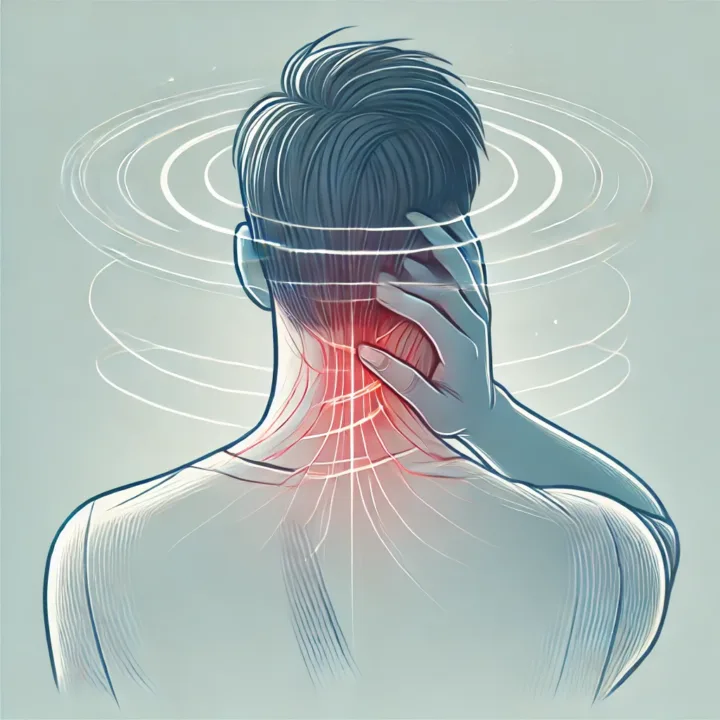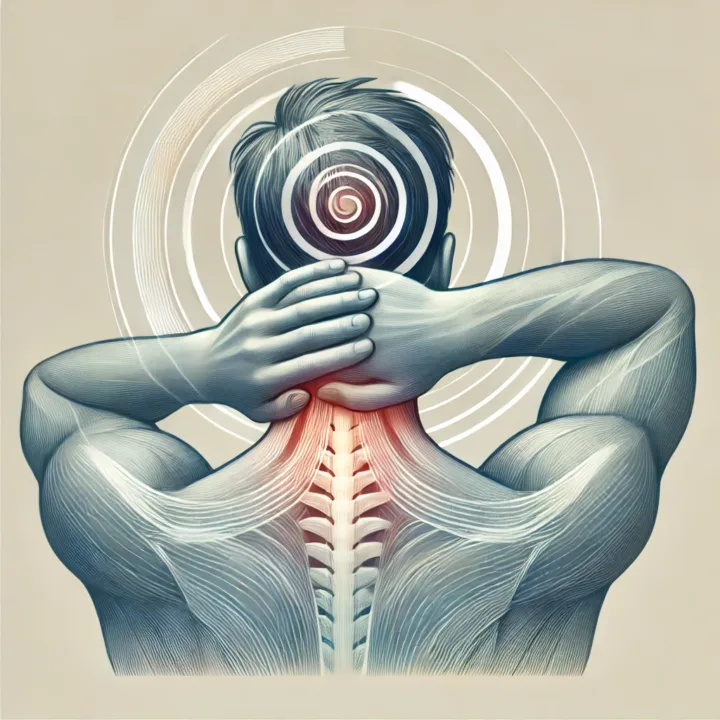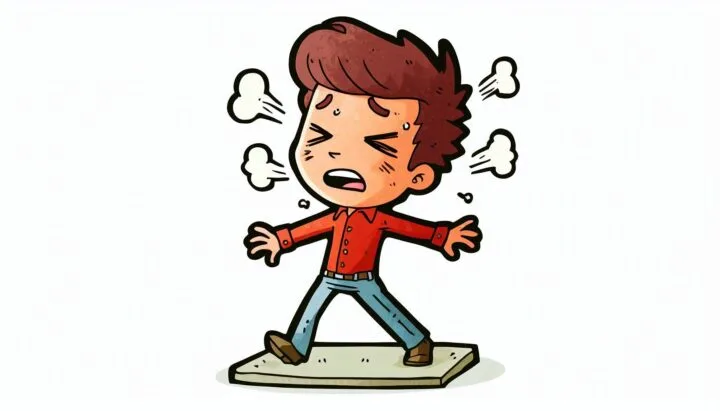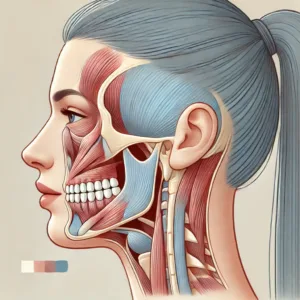Can Tension Headaches Cause Lightheadedness? Understanding the Link and How to Find Relief
Table of Contents

Can Tension Headaches Cause Lightheadedness? Understanding the Link and How to Find Relief
Introduction
Tension headaches are among the most common types of headaches, but if you’ve ever experienced lightheadedness along with that familiar band of pressure around your head, you might be wondering, “Can tension headaches cause lightheadedness?” The answer is yes—tension headaches can sometimes lead to feelings of dizziness, lightheadedness, or even slight disorientation.
These symptoms can be unsettling, especially when you’re unsure of their cause or how to relieve them. Understanding the connection between tension headaches and lightheadedness is key to effective treatment and prevention.
In this blog, we’ll explore why tension headaches can cause lightheadedness, common triggers, symptoms to watch for, and effective remedies to help you feel better.
What Are Tension Headaches, and How Can They Lead to Lightheadedness?
Tension headaches typically cause a dull, aching pain around the forehead, temples, and back of the head. They’re often triggered by muscle tension, stress, or poor posture. While lightheadedness is not always a primary symptom, it’s a common secondary effect for many sufferers.
Why Tension Headaches Can Make You Lightheaded:
- Muscle Tension in the Neck and Shoulders
- Tight muscles in the neck and shoulders can restrict blood flow to the head and brain, leading to feelings of lightheadedness.
- This tension can also compress nerves connected to the vestibular system, which controls balance.
- Reduced Oxygen Supply to the Brain
- Prolonged tension can restrict blood flow, potentially reducing the oxygen supply to the brain, causing dizziness or lightheadedness.
- Stress and Hyperventilation
- Stress, a common trigger for tension headaches, often leads to shallow breathing or hyperventilation. This can lower carbon dioxide levels in the blood, resulting in lightheadedness.
- Poor Posture
- Slouching or prolonged periods of looking down at devices can contribute to tension headaches and cause a slight reduction in circulation to the brain.
Common Symptoms of Tension Headaches with Lightheadedness
When tension headaches cause lightheadedness, you may experience a combination of the following symptoms:
- Dull, pressure-like pain around the head, temples, or back of the head
- Stiffness or tightness in the neck and shoulders
- A sense of unsteadiness or imbalance
- Difficulty focusing or blurred vision
- Fatigue or general weakness
- Mild dizziness or “floating” sensation
If symptoms persist or worsen, it’s essential to consult a healthcare professional to rule out underlying conditions.
How to Differentiate Between Tension Headaches and Other Causes of Lightheadedness
Not all cases of lightheadedness are caused by tension headaches. It’s important to distinguish tension headaches from other potential causes.
1. Migraines
- Key symptoms: Throbbing or pulsing pain, often on one side of the head, accompanied by nausea and light sensitivity
- Lightheadedness cause: Migraines can affect the vestibular system, leading to dizziness or vertigo.
2. Cervicogenic Headaches
- Key symptoms: Headache pain that originates in the neck and radiates upward
- Lightheadedness cause: Compression of nerves or blood vessels due to neck issues
3. Inner Ear Disorders (e.g., Vertigo)
- Key symptoms: Spinning sensations, ear ringing, or hearing loss
- Lightheadedness cause: Direct disturbance of the vestibular system
If you’re unsure whether your lightheadedness is due to a tension headache or another cause, consult a healthcare provider for proper diagnosis.
Effective Remedies for Tension Headaches with Lightheadedness
1. Practice Neck and Shoulder Stretches
Relieve muscle tension with simple stretches to improve blood flow and ease pressure on nerves.
- Neck tilt stretch: Tilt your head to one side and hold for 15 seconds, then switch sides.
- Shoulder rolls: Gently roll your shoulders forward and backward to release tension.
2. Maintain Good Posture
Proper posture prevents muscle strain and promotes healthy blood flow to the brain.
- Sit with your back straight and shoulders relaxed.
- Keep your computer or device at eye level to avoid craning your neck.
3. Stay Hydrated
Dehydration can worsen both headaches and lightheadedness. Make sure you’re drinking enough water throughout the day.
4. Manage Stress and Practice Relaxation Techniques
Stress is a major trigger for tension headaches. Consider incorporating relaxation exercises like:
- Meditation or mindfulness
- Progressive muscle relaxation
- Deep breathing exercises
5. Use Heat or Cold Therapy
- Heat therapy: Apply a warm compress to the neck and shoulders to relax tight muscles.
- Cold therapy: Place a cold pack on the forehead or back of the neck to numb pain.
6. Over-the-Counter Pain Relief
Non-prescription medications like ibuprofen or acetaminophen can help reduce headache pain. However, use them sparingly to avoid rebound headaches.
7. Try Vestibular Exercises
If lightheadedness persists, exercises designed to improve balance, such as head turns or standing balance exercises, can help.
When to See a Doctor
While tension headaches with lightheadedness are often harmless and manageable, certain symptoms may indicate a more serious issue. Seek medical attention if you experience:
- Persistent or worsening dizziness
- Severe or sudden headaches
- Difficulty speaking, confusion, or vision changes
- Numbness or tingling in the limbs
These symptoms could point to conditions like migraines, vestibular disorders, or neurological issues.
Preventing Future Episodes
- Maintain an ergonomic workspace to reduce neck and shoulder strain.
- Set reminders to take breaks and stretch during long periods of sitting.
- Get regular exercise to reduce muscle tension and improve circulation.
- Establish a consistent sleep schedule to ensure adequate rest and recovery.
Conclusion
Yes, tension headaches can cause lightheadedness, particularly when muscle tension, poor posture, or restricted blood flow are involved. By addressing the root causes of tension headaches and adopting preventive measures, you can significantly reduce both headache frequency and accompanying symptoms like lightheadedness. If symptoms persist, don’t hesitate to seek professional help to rule out any underlying health concerns.
Remember, taking small steps—like improving posture, staying hydrated, and managing stress—can make a big difference in your overall well-being.
FAQ
1. How long does lightheadedness from a tension headache last?
Lightheadedness typically subsides once the headache is resolved, which can range from a few minutes to a few hours.
2. Can dehydration worsen both tension headaches and lightheadedness?
Yes, dehydration can be a significant contributing factor to both symptoms, so staying hydrated is important.
3. Are tension headaches dangerous?
Most tension headaches are harmless, but severe or persistent symptoms should be evaluated by a healthcare provider.
4. Can poor sleep contribute to tension headaches and lightheadedness?
Yes, inadequate sleep can cause muscle tension, increasing the likelihood of tension headaches and dizziness.
5. What’s the best way to prevent tension headaches?
Maintaining good posture, managing stress, staying hydrated, and incorporating regular physical activity can help prevent them.













Post Comment